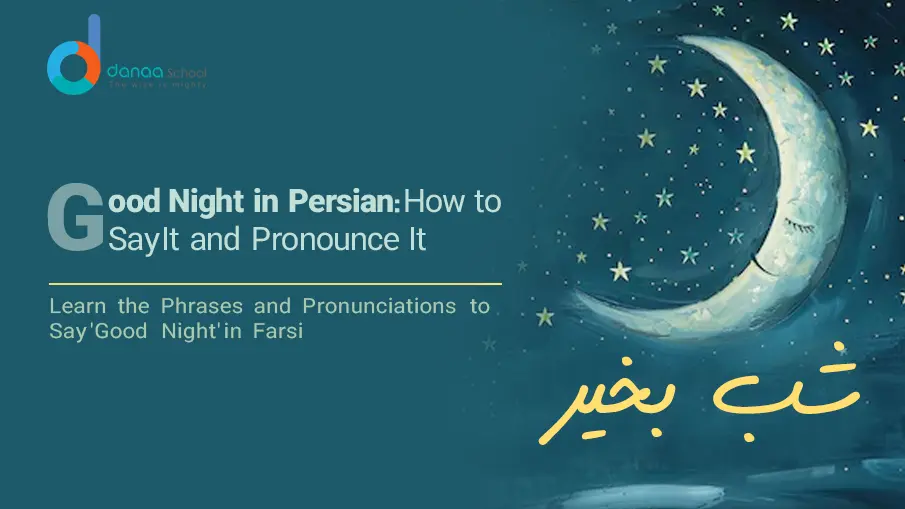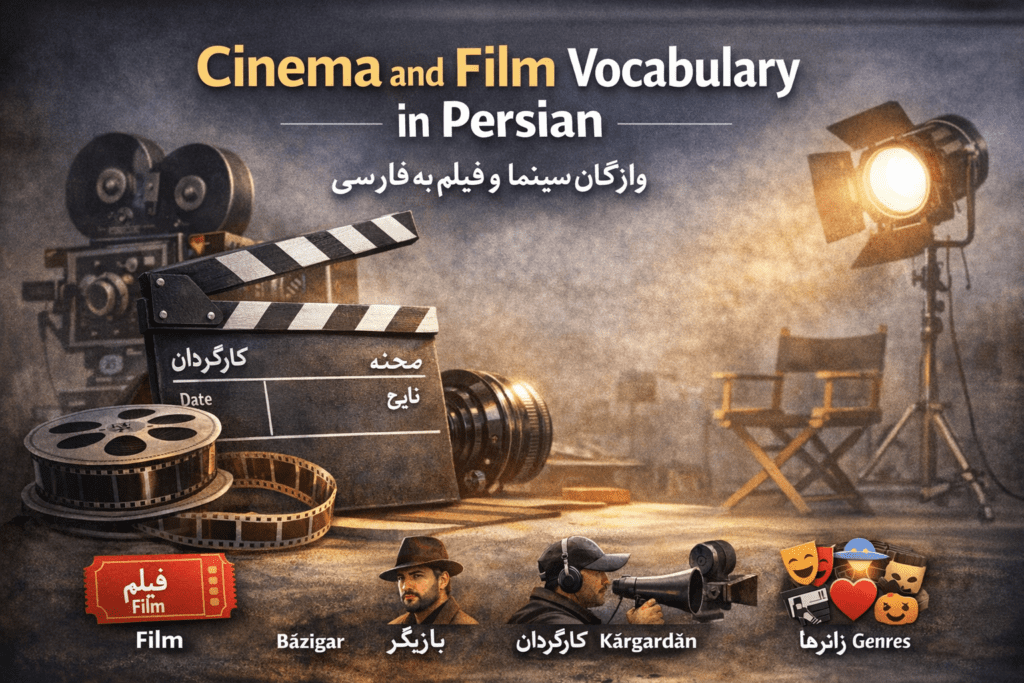How to Say Good Night in Persian (Farsi): Phrases, Meaning, and Pronunciation
Saying good night in Persian (Farsi) is a simple way to sound polite and natural in everyday conversation. In this guide, you’ll learn the most common phrases, how to pronounce them, and when to use each one.
Quick answer: The most common way to say good night in Farsi is شب بخیر (Shab bekheir).
Table of contents
- The standard phrase: شب بخیر (Shab bekheir)
- Sweet dreams: خوابِ خوش (Khab-e khosh)
- When to use each phrase
- Pronunciation tips for beginners
- FAQ
- Learn Persian with Danaa School
- Conclusion
How to say “Good night” in Farsi: شب بخیر (Shab bekheir)
The most common and widely accepted way to say good night in Farsi is:
شب بخیر — Shab bekheir
This phrase literally means “good night.” It works in both formal and informal situations, so it’s safe to use with family, friends, colleagues, and in polite everyday interactions.
If you learn only one expression for good night in Persian, make it Shab bekheir.
Another common phrase: خوابِ خوش (Khab-e khosh)
Another popular phrase you may hear (often said right after “good night”) is:
خوابِ خوش — Khab-e khosh
This means “sweet dreams.” It sounds warmer and more affectionate than Shab bekheir, so it’s most common with close friends, family members, partners, or children.
A very natural combination is: Shab bekheir, khab-e khosh (Good night, sweet dreams).
Cultural note: what “good night” communicates in Persian
In Persian culture, everyday phrases often carry emotional warmth. Saying good night in Farsi is not only routine—it can signal care, politeness, and connection, especially in family and close relationships.
Pronunciation tips (simple and beginner-friendly)
- Shab bekheir — shahb beh-kheyr (the “kh” is a throaty sound, like in “Bach”)
- Khab-e khosh — khahb-eh khosh
Tip: Listen to native speakers, repeat slowly, and focus on the kh sound. Practicing short phrases like good night in Persian is one of the fastest ways to build confidence.
Learn Persian with Danaa School
If you want to learn Persian confidently—with real pronunciation practice and cultural context— Danaa School offers structured Farsi courses designed for real-life conversation.
Learning everyday expressions like good night in Farsi is a great starting point for building fluency.
Conclusion
Learning how to say good night in Persian (Farsi) is a small but meaningful step toward speaking naturally. Use شب بخیر (Shab bekheir) as your go-to phrase, and add خوابِ خوش (Khab-e khosh) when you want to sound warmer and more affectionate.
What does “Shab Bekheir” mean?
“Shab Bekheir” means “good night” in Persian and is used to wish someone a restful night.
What does “Khwab Khosh” mean?
“Khwab Khosh” means “sweet dreams” and is a more affectionate good night phrase.
Is “Shab Bekheir” formal?
It is neutral and can be used in both formal and informal situations.
Can I say “Shab Bekheir” and “Khwab Khosh” together?
Yes. Many Persian speakers say “Shab Bekheir, Khwab Khosh” to mean “Good night, sweet dreams.”






